If you’re a fan of Jason Statham action films, you’ll be happy to know his latest movie, a remake of The Mechanic, opens this weekend.  Like the 1972 Charles Bronson film that it’s based on, Statham plays a ‘mechanic’, which is “an elite assassin with a strict code and unique talent for cleanly eliminating targets.â€Â  Unlike some remakes that stray far from the original, Statham’s remake uses the same plot, but updates all the technology and kills. Also, Simon West directed (Con Air, Lara Croft: Tomb Raider) the film so the action is well done. I actually thought the remake was a lot of fun and casting Ben Foster to play the apprentice was a smart move as he’s an awesome actor that brings a lot to the role. For more on the film, watch 4 clips here.Anyway, I recently got to participate in a roundtable interview with Foster and you can either read a transcript or listen to the audio after the jump. During the interview, Foster talked about working alongside Statham and what it was like to make The Mechanic, the nasty injury he landed as a result of doing his own stunts, how he prepares for each role, why he tends to play tough guys, and he gave us updates on Contraband, Fernando Meirelles’ 360, and Oren Moverman's Rampart. If you're a fan of this great actor, you definitely should check out the interview: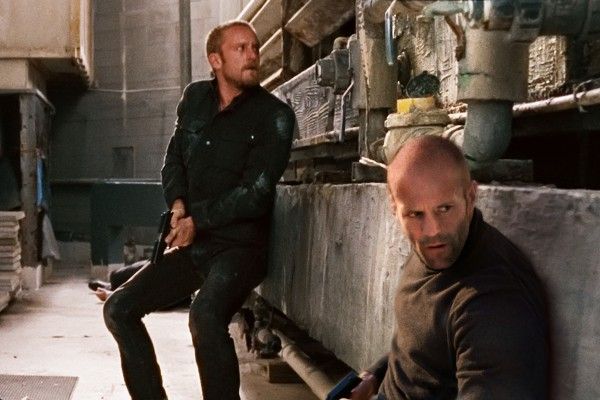 If you'd like to listen to the audio of the interview, click here. Otherwise, I've posted the entire transcript below. The Mechanic opens January 28.-Question: So when you’re getting ready to do a Jason Statham film, do you re-watch a whole bunch of his movies, how do you prep for one of these things?Ben Foster: Yeah, I watched Crank 2 again, and I love that movie. I really liked what he did in The Bank Job, I hadn’t seen the Transporters, but I really liked what he did in that. So, how do you prep a Jason Statham movie? I don’t know how to answer that question. I mean, you just kind of go in and hope you guys get along, and go make something that hopefully is funDid you watch the original?Foster: No. If I haven’t seen it, and I’m doing a remake—I think this is the third one—I don’t want to watch it, because I’m afraid of somehow stealing consciously or unconsciously. There’s a fear, how does a film live up to its original, and why are you remaking it? So, we know this is a business of commerce, and occasionally some things can be really entertaining. I don’t think you can live up to a film, but you can approach it from your own way, and if you give it yourself, then it can be its own entity. Have you gone back to see the original since shooting it?Foster: No, I haven’t seen the original 3:10 (To Yuma). I’d like to at some point, but it was always too close, and then I kind of forget.What was your third remake?Foster: …my brain’s broken today. If I remember halfway—man, I came from New Orleans today, was up at 3:30 in the morning, went to New York, to go watch footage of a film I just produced, got on a plane three hours later, got here at two a.m. I don’t know what we’re talking about (laughs)What were you doing in New Orleans, if you don’t mind me asking?Foster: It’s called Contraband. Good group of guys down there
If you'd like to listen to the audio of the interview, click here. Otherwise, I've posted the entire transcript below. The Mechanic opens January 28.-Question: So when you’re getting ready to do a Jason Statham film, do you re-watch a whole bunch of his movies, how do you prep for one of these things?Ben Foster: Yeah, I watched Crank 2 again, and I love that movie. I really liked what he did in The Bank Job, I hadn’t seen the Transporters, but I really liked what he did in that. So, how do you prep a Jason Statham movie? I don’t know how to answer that question. I mean, you just kind of go in and hope you guys get along, and go make something that hopefully is funDid you watch the original?Foster: No. If I haven’t seen it, and I’m doing a remake—I think this is the third one—I don’t want to watch it, because I’m afraid of somehow stealing consciously or unconsciously. There’s a fear, how does a film live up to its original, and why are you remaking it? So, we know this is a business of commerce, and occasionally some things can be really entertaining. I don’t think you can live up to a film, but you can approach it from your own way, and if you give it yourself, then it can be its own entity. Have you gone back to see the original since shooting it?Foster: No, I haven’t seen the original 3:10 (To Yuma). I’d like to at some point, but it was always too close, and then I kind of forget.What was your third remake?Foster: …my brain’s broken today. If I remember halfway—man, I came from New Orleans today, was up at 3:30 in the morning, went to New York, to go watch footage of a film I just produced, got on a plane three hours later, got here at two a.m. I don’t know what we’re talking about (laughs)What were you doing in New Orleans, if you don’t mind me asking?Foster: It’s called Contraband. Good group of guys down there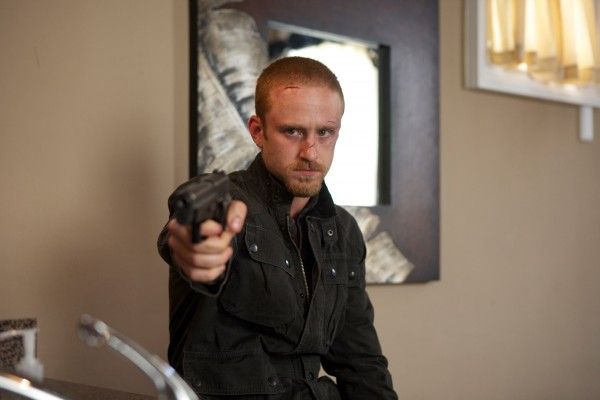 You have a pretty memorable fight scene in this film. You obviously knew you were getting into this genre, this action. Did you do a lot of gym stuff, how did you prepare for that scene, and also can you talk about shooting that scene?Foster: Yeah, it was wild. That’s kind of like the tent-pole scene, for at least what I have to do in the picture. It’s the big sequence for me, so we trained for, or worked on choreography, for about three months. Because he’s such a big fellow, you start with a stuntman, then you build up to him. I can’t reach his face, so we just have to find our own fight style. Is it krav maga, is it taekwondo, is it just gnarly street fighting? We started just going closer to street fighting. So trained and worked it out with this fella. The drag of that fight sequence was we shot the first section of it really rushed the night before. We were going to have two days to fight it, we lost a day of shooting so we just got the opening. Which is, there’s some stuff with a drawer, and then he throws me into a wall, its just at the top. They told me not to, and I did it anyway, so I went into the wall and came down, because, you know, I’m of the Jackass-generation, and snapped my shoulder. I’m right-handed. You hear something go “snap,†and you’re like, “Stupid man.â€Â Then you get up, they’re like, “how you doing?†You’re tough, you have to be in the pocket, so you’re like, “Yeah, maybe one more take.â€Â You do it again, and you’re like, “Ahhh, I really shouldn’t have done that.â€Â They’re like, “We need one more,†and you’re like, “I really can’t...Ok.â€Â Into the wall, down on the shoulder, and said, “Ok, that’s it. We got it?â€Â They say, “We got.â€Â “You’re fine?â€Â “I’m fine.† I go back to the hotel and when I woke up I couldn’t get out of bed. What it felt like was my collarbone—I don’t know if you guys have ever broken your collarbone before—you can’t move. You can’t turn your neck and you can’t turn your arm. So that call to the producers sucks. “Uhh, you know that thing that we’ve kind of been working on, that we really got to shoot today? I can’t move!â€Â So they brought me to a doctor who works on the Saints, the football team, and he took out a big motherfucking syringe, and he pumps it in, put it out, and put it in again, and the arm starts loosening. I’m like, “That drug’s great. Whatever is in this is good shit. I like it here, I can shoot a movie now.â€Â I go to set, I’m like, “I’m so good, I’m so good, let’s do this, I’m ready, let’s do this.â€Â By the time the set was up, it was like this again. “Ohh, call the magic doctor. This is how drug habits start, give me the doctor.â€Â He comes in, he just leans into me—really great guy—and he’s like, “You know, I work for the Saints, and they’re a little bigger than you, but I’ve never given any of them this much. Good luck.â€Â So then you reorganize, and you’re like, well, I can at least not fight like this, but I can fight like this. Then we just wrote it in really fast, and just say that right is left and left is right. So screwdriver the flights, the swings, everything had to be reversed. We had a great coordinator and it was a gas. Pain is a great motivator. I mean, at the end of the day, you can use pain as an energy. It can be emotional, it can be physical, but as military says, pain is weakness leaving the body. You just kind of have to ride it out, and hope you’ve got a doctor to pump you full of shit.Do you know the medicine that they injected you with?Foster: It was like a mix of steroids, a muscle relaxer—it was a cocktail of crazy pants. Yeah, I mean it’s the stuff they give the big guys.So that line that says I'm not a lefty in that scene, was that added so you could do that stuff with your left hand?Foster: Yeah. Wow, you pay attention. I like that, that’s good.
You have a pretty memorable fight scene in this film. You obviously knew you were getting into this genre, this action. Did you do a lot of gym stuff, how did you prepare for that scene, and also can you talk about shooting that scene?Foster: Yeah, it was wild. That’s kind of like the tent-pole scene, for at least what I have to do in the picture. It’s the big sequence for me, so we trained for, or worked on choreography, for about three months. Because he’s such a big fellow, you start with a stuntman, then you build up to him. I can’t reach his face, so we just have to find our own fight style. Is it krav maga, is it taekwondo, is it just gnarly street fighting? We started just going closer to street fighting. So trained and worked it out with this fella. The drag of that fight sequence was we shot the first section of it really rushed the night before. We were going to have two days to fight it, we lost a day of shooting so we just got the opening. Which is, there’s some stuff with a drawer, and then he throws me into a wall, its just at the top. They told me not to, and I did it anyway, so I went into the wall and came down, because, you know, I’m of the Jackass-generation, and snapped my shoulder. I’m right-handed. You hear something go “snap,†and you’re like, “Stupid man.â€Â Then you get up, they’re like, “how you doing?†You’re tough, you have to be in the pocket, so you’re like, “Yeah, maybe one more take.â€Â You do it again, and you’re like, “Ahhh, I really shouldn’t have done that.â€Â They’re like, “We need one more,†and you’re like, “I really can’t...Ok.â€Â Into the wall, down on the shoulder, and said, “Ok, that’s it. We got it?â€Â They say, “We got.â€Â “You’re fine?â€Â “I’m fine.† I go back to the hotel and when I woke up I couldn’t get out of bed. What it felt like was my collarbone—I don’t know if you guys have ever broken your collarbone before—you can’t move. You can’t turn your neck and you can’t turn your arm. So that call to the producers sucks. “Uhh, you know that thing that we’ve kind of been working on, that we really got to shoot today? I can’t move!â€Â So they brought me to a doctor who works on the Saints, the football team, and he took out a big motherfucking syringe, and he pumps it in, put it out, and put it in again, and the arm starts loosening. I’m like, “That drug’s great. Whatever is in this is good shit. I like it here, I can shoot a movie now.â€Â I go to set, I’m like, “I’m so good, I’m so good, let’s do this, I’m ready, let’s do this.â€Â By the time the set was up, it was like this again. “Ohh, call the magic doctor. This is how drug habits start, give me the doctor.â€Â He comes in, he just leans into me—really great guy—and he’s like, “You know, I work for the Saints, and they’re a little bigger than you, but I’ve never given any of them this much. Good luck.â€Â So then you reorganize, and you’re like, well, I can at least not fight like this, but I can fight like this. Then we just wrote it in really fast, and just say that right is left and left is right. So screwdriver the flights, the swings, everything had to be reversed. We had a great coordinator and it was a gas. Pain is a great motivator. I mean, at the end of the day, you can use pain as an energy. It can be emotional, it can be physical, but as military says, pain is weakness leaving the body. You just kind of have to ride it out, and hope you’ve got a doctor to pump you full of shit.Do you know the medicine that they injected you with?Foster: It was like a mix of steroids, a muscle relaxer—it was a cocktail of crazy pants. Yeah, I mean it’s the stuff they give the big guys.So that line that says I'm not a lefty in that scene, was that added so you could do that stuff with your left hand?Foster: Yeah. Wow, you pay attention. I like that, that’s good.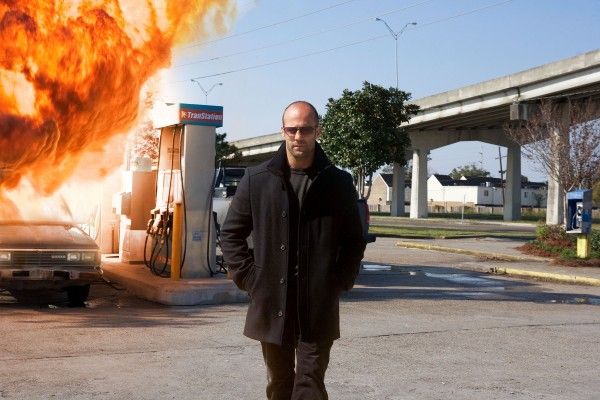 So I’m assuming you and Jason did get along?Foster: Yeah. We laughed more than not. You know, when he’s comfortable, he’s the funniest guy you’ve ever met. Just a wicked, self-effacing, just a good bloke, and a hell of an athlete, and it’s a world that I know very little about, and he was good to me. I was impressed with the work that he did this picture. Thought it was quiet, it was internal, it was intense, it could have gone a few different ways, but I thought he had some really quiet, nice moments in this film. Yeah, we blew shit up.I’d love to hear about how you create tough guys, because you’re not 7’0 feet tall, but in like Alpha Dog and 3:10 to Yuma you’re really threatening on screen, and you have this unpredictability.Foster: Thanks. I don’t know. I’m not a tall guy. The roles I’m interested in or have been interested in, you know, it’s going to get down to conflict. Drama is conflict, conflict of interests. I don’t know, I enjoy what I do. Very lucky to work, period.How do you get into the aggression mood? Do you have a routine or do you just have a switch to just shoot it, basically?Foster: It’s really simple stuff. It doesn’t feel good. You’re not happy; I don’t necessarily go home feeling great if it’s been an intense day on set, but you figure out what that person cares about and you care about that thing and protect it as much as you can. If somebody makes your life difficult, or the people that you love, their life difficult, is taking something away from the idea of your own security in life, how are you going to defend it? How much do you care—and that’s what it gets down to—how much do you love? The characters that I’ve played, some of them have the tendency towards violence, internally or externally, but it gets down to how much do you care.So do you think it makes you a better person, to play these violent roles, because you think about them and you grow inside?Foster: I don’t know, I hope. I mean I think we can take any metaphor, any job that we do—you ask questions right, you go out and you’re journalists? You go out and ask questions and you’re interested, maybe at the end of the day it isn’t what they said it’s what they didn’t say that maybe we can reflect back on. It’s the same thing with acting. I don’t know, I hope we evolve, but we intend to open our hearts up a bit.I’m curious, if you could, you mentioned playing these intense characters, what kind of character do you play in Contraband and, also, in Fernando Meirelles’ 360?Ben Foster: How did you hear about that? It was reported just about an hour ago.Foster: Really?
So I’m assuming you and Jason did get along?Foster: Yeah. We laughed more than not. You know, when he’s comfortable, he’s the funniest guy you’ve ever met. Just a wicked, self-effacing, just a good bloke, and a hell of an athlete, and it’s a world that I know very little about, and he was good to me. I was impressed with the work that he did this picture. Thought it was quiet, it was internal, it was intense, it could have gone a few different ways, but I thought he had some really quiet, nice moments in this film. Yeah, we blew shit up.I’d love to hear about how you create tough guys, because you’re not 7’0 feet tall, but in like Alpha Dog and 3:10 to Yuma you’re really threatening on screen, and you have this unpredictability.Foster: Thanks. I don’t know. I’m not a tall guy. The roles I’m interested in or have been interested in, you know, it’s going to get down to conflict. Drama is conflict, conflict of interests. I don’t know, I enjoy what I do. Very lucky to work, period.How do you get into the aggression mood? Do you have a routine or do you just have a switch to just shoot it, basically?Foster: It’s really simple stuff. It doesn’t feel good. You’re not happy; I don’t necessarily go home feeling great if it’s been an intense day on set, but you figure out what that person cares about and you care about that thing and protect it as much as you can. If somebody makes your life difficult, or the people that you love, their life difficult, is taking something away from the idea of your own security in life, how are you going to defend it? How much do you care—and that’s what it gets down to—how much do you love? The characters that I’ve played, some of them have the tendency towards violence, internally or externally, but it gets down to how much do you care.So do you think it makes you a better person, to play these violent roles, because you think about them and you grow inside?Foster: I don’t know, I hope. I mean I think we can take any metaphor, any job that we do—you ask questions right, you go out and you’re journalists? You go out and ask questions and you’re interested, maybe at the end of the day it isn’t what they said it’s what they didn’t say that maybe we can reflect back on. It’s the same thing with acting. I don’t know, I hope we evolve, but we intend to open our hearts up a bit.I’m curious, if you could, you mentioned playing these intense characters, what kind of character do you play in Contraband and, also, in Fernando Meirelles’ 360?Ben Foster: How did you hear about that? It was reported just about an hour ago.Foster: Really? 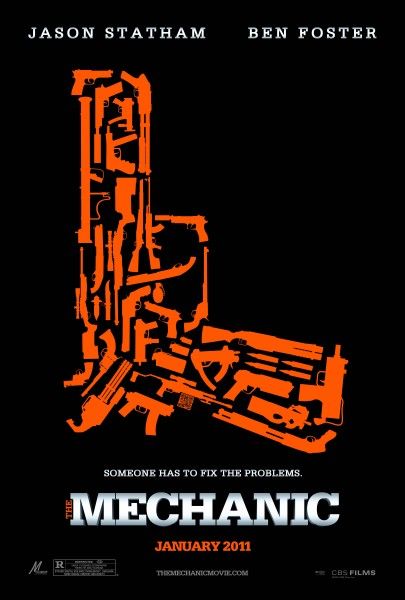 Yeah, it’s online. I heard it and I was like, “guess who I’m sitting down with today?â€Â Great timing.Foster: Wow. I went and did a film that I’ll have at Sundance this year, I’m just trying to learn different things right now, and when it feels good, it feels good. So, Here is about a mapmaker. It’s a gentle romance/road movie set in Armenia. In Contraband I’m moving import/export with Mark Wahlberg, my best friend, family, and we just move gear through the ports of New Orleans. There’s a great cast, Giovanni Ribisi has just got a killer role. Lukas Haas, Kate Beckinsale, it’s a fun cast. And 360 is about a sex-offender who is just getting out of prison and he’s looking to go to kind of a halfway house.  Then there’s a storm when he’s at an airport and he’s kind of stuck there. There’s several different storylines, but he’s stuck at an airport with people. Do you have a start date on that?Foster: Yeah, I think it’s March. So your next few months are pretty busy?Foster: Yeah, and in New York we just produced by first film which was so exciting and, I’m just saying it now, watch out for next awards season, Woody Harrelson’s performance in this movie Rampart is insane. It’s insane what he did. And I don’t want to sound like a douchebag producer, but I am now. So, I’m just saying, Rampart. So, are you in that or are you just producing?Foster: Yeah, I have a small role in that. What was that like? You guys had such a pairing your last time together.Foster: He’s my brother. He’s my brother. The Messenger director Oren Moverman and I started a production company, so Rampart was the first one we did together and we just tried to get the gang back. Woody is the only man for this job. He plays a cop in 1999, in Rampart, in Los Angeles and it’s stone cold. Stone cold work. Robin Wright, Sigourney Weaver, Cynthia Nixon, Steve Buscemi… When you guys did The Messenger you guys did a lot of “natural stuff,†you know, from what I remember. Was that similar on Rampart? Were you guys like finding it on-set?Foster: There’s a lot of improvisation. But, that’s based on Oren’s work and it’s based on James Ellroy’s script that Oren Moverman rewrote and then we do all this prep work. He works with each actor separately and then there’s no more rehearsal and whatever happens, happens. It’s a very different way to go and we think a successful one with the right people. How has the experience of producing been?Foster: There’s a steep learning curve. Really humbling and thrilling. Where, you know, the actors (laughs)…there’s like all these “handlers†and the special treatment and it’s really kind of repulsive and a waste of time and energy but it’s good, however it works. Seeing that side of the operation and how a film that runs smoothly and well and you make your days and you keep content while trying to raise the bar every day is…I have a lot of respect for, always dig the crew. Sometimes a lot more than the cast. But a good run production team is paramount to making a good film. You just can’t it done without a good line producer, without creative producers, without people who are making stuff happen. It’s wild.
Yeah, it’s online. I heard it and I was like, “guess who I’m sitting down with today?â€Â Great timing.Foster: Wow. I went and did a film that I’ll have at Sundance this year, I’m just trying to learn different things right now, and when it feels good, it feels good. So, Here is about a mapmaker. It’s a gentle romance/road movie set in Armenia. In Contraband I’m moving import/export with Mark Wahlberg, my best friend, family, and we just move gear through the ports of New Orleans. There’s a great cast, Giovanni Ribisi has just got a killer role. Lukas Haas, Kate Beckinsale, it’s a fun cast. And 360 is about a sex-offender who is just getting out of prison and he’s looking to go to kind of a halfway house.  Then there’s a storm when he’s at an airport and he’s kind of stuck there. There’s several different storylines, but he’s stuck at an airport with people. Do you have a start date on that?Foster: Yeah, I think it’s March. So your next few months are pretty busy?Foster: Yeah, and in New York we just produced by first film which was so exciting and, I’m just saying it now, watch out for next awards season, Woody Harrelson’s performance in this movie Rampart is insane. It’s insane what he did. And I don’t want to sound like a douchebag producer, but I am now. So, I’m just saying, Rampart. So, are you in that or are you just producing?Foster: Yeah, I have a small role in that. What was that like? You guys had such a pairing your last time together.Foster: He’s my brother. He’s my brother. The Messenger director Oren Moverman and I started a production company, so Rampart was the first one we did together and we just tried to get the gang back. Woody is the only man for this job. He plays a cop in 1999, in Rampart, in Los Angeles and it’s stone cold. Stone cold work. Robin Wright, Sigourney Weaver, Cynthia Nixon, Steve Buscemi… When you guys did The Messenger you guys did a lot of “natural stuff,†you know, from what I remember. Was that similar on Rampart? Were you guys like finding it on-set?Foster: There’s a lot of improvisation. But, that’s based on Oren’s work and it’s based on James Ellroy’s script that Oren Moverman rewrote and then we do all this prep work. He works with each actor separately and then there’s no more rehearsal and whatever happens, happens. It’s a very different way to go and we think a successful one with the right people. How has the experience of producing been?Foster: There’s a steep learning curve. Really humbling and thrilling. Where, you know, the actors (laughs)…there’s like all these “handlers†and the special treatment and it’s really kind of repulsive and a waste of time and energy but it’s good, however it works. Seeing that side of the operation and how a film that runs smoothly and well and you make your days and you keep content while trying to raise the bar every day is…I have a lot of respect for, always dig the crew. Sometimes a lot more than the cast. But a good run production team is paramount to making a good film. You just can’t it done without a good line producer, without creative producers, without people who are making stuff happen. It’s wild. 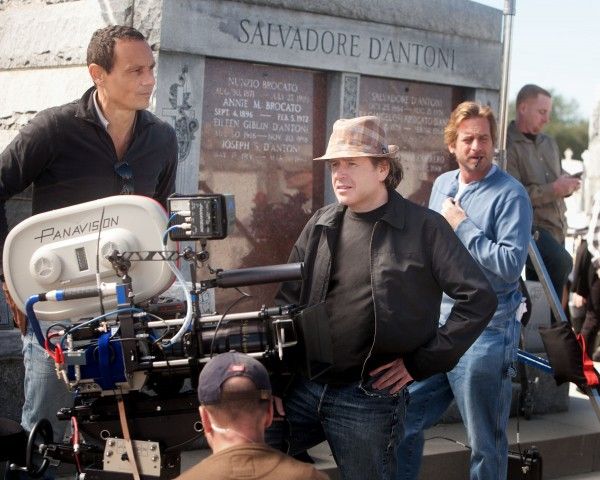 Where did the desire to produce come from in the first place?Foster: Just working with Oren. I met him and I was like, “I’m out of L.A., I’m going to go work with him, and we’re going to develop stuff.â€Â The Messenger was such a great experience, the process of that, and I just figured he is the guy I want to work with. So, it’s how do you make something with someone, how do you make something, and we were just like, “All right, let’s make Rampart.†Are you aiming for a certain festival?Foster: Uh, next year. We’re just cutting right now. We just got an assembly. Do you have a distributor for that or are you still looking?Foster: We’re independent. Yeah, fingers crossed.
Where did the desire to produce come from in the first place?Foster: Just working with Oren. I met him and I was like, “I’m out of L.A., I’m going to go work with him, and we’re going to develop stuff.â€Â The Messenger was such a great experience, the process of that, and I just figured he is the guy I want to work with. So, it’s how do you make something with someone, how do you make something, and we were just like, “All right, let’s make Rampart.†Are you aiming for a certain festival?Foster: Uh, next year. We’re just cutting right now. We just got an assembly. Do you have a distributor for that or are you still looking?Foster: We’re independent. Yeah, fingers crossed.

